Filter by

Onward Migration and Multi-Sited Transnationalism Complex Trajectories, Prac…
This open access book brings novel perspectives to the scholarship on transnational migration. The book stresses the complexity of migration trajectories and proposes multi-sited field studies to capture this complexity. Its constituent chapters offer examples of onward migration spanning all major world regions. The contents exemplify a range of interdisciplinary approaches, including both qua…
- Edition
- -
- ISBN/ISSN
- 9783031125034
- Collation
- -
- Series Title
- -
- Call Number
- -

Cybersecurity of Digital Service Chains Challenges, Methodologies, and Tools
This open access book presents the main scientific results from the H2020 GUARD project. The GUARD project aims at filling the current technological gap between software management paradigms and cybersecurity models, the latter still lacking orchestration and agility to effectively address the dynamicity of the former. This book provides a comprehensive review of the main concepts, architecture…
- Edition
- -
- ISBN/ISSN
- 9783031040368
- Collation
- -
- Series Title
- -
- Call Number
- -
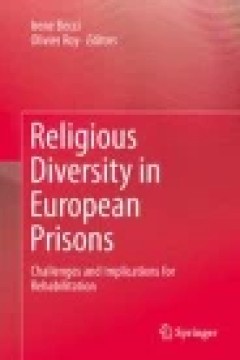
Religious Diversity in European Prisons
- Edition
- -
- ISBN/ISSN
- -
- Collation
- -
- Series Title
- -
- Call Number
- -
- Edition
- -
- ISBN/ISSN
- -
- Collation
- -
- Series Title
- -
- Call Number
- -
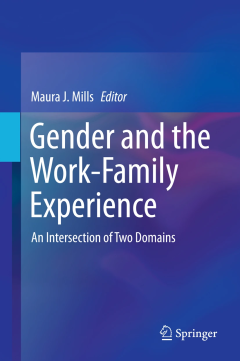
Gender and the Work-Family Experience: An Intersection of Two Domains
Conflict between work and family has been a topic of discussion since the beginning of the women's movement, but recent changes in family structures and workforce demographics have made it clear that the issues impact both women and men. While employers and policymakers struggle to navigate this new terrain, critics charge that the research sector, too, has been slow to respond. Gender and t…
- Edition
- 1
- ISBN/ISSN
- 978-3-319-08890-7
- Collation
- XXIII, 358
- Series Title
- -
- Call Number
- 158.2

Bridging Australia and Japan Volume 2 The writings of David Sissons, histori…
This book is volume two of the writings of David Sissons, who first established his academic career as a political scientist specialising in Japanese politics, and later shifted his focus to the history of Australia–Japan relations. In this volume, we reproduce his writings on Japanese politics, the Pacific War and Australian war crimes trials after the war. He was a pioneer in these fields, …
- Edition
- -
- ISBN/ISSN
- -
- Collation
- -
- Series Title
- -
- Call Number
- -
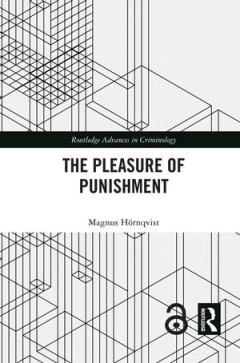
The Pleasure of Punishment
Based on a reading of contemporary philosophical arguments, this book accounts for how punishment has provided audiences with pleasure in different historical contexts. Watching tragedies, contemplating hell, attending executions, or imagining prisons have generated pleasure, according to contemporary observers, in ancient Greece, in medieval Catholic Europe, in the early-modern absolutist stat…
- Edition
- -
- ISBN/ISSN
- 9780429589614
- Collation
- -
- Series Title
- -
- Call Number
- 174 HOR p

Reproductive Technology and Surrogacy
During the past few years, reproductive technology and surrogacy have emerged in a number of European countries as issues of debate. There has been a steady increase in the use of reproductive technology in the Nordic countries, as well as an increase in the use of cross-border medical treatment in order to achieve pregnancy. At the same time, a number of ethical issues have been raised concern…
- Edition
- -
- ISBN/ISSN
- 9789289342889
- Collation
- -
- Series Title
- TemaNord
- Call Number
- 340 NOR r
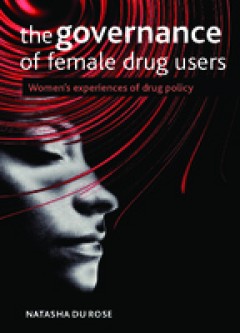
The governance of female drug users
Challenging popular misconceptions of female users, this book is the first to examine how female drug user's identities, and hence their experiences, are shaped by drug policies.
- Edition
- -
- ISBN/ISSN
- 9781447354727
- Collation
- -
- Series Title
- -
- Call Number
- -

Critical Storytelling in Uncritical Times : stories disclosed in a cultural f…
Critical Storytelling in Uncritical Times shares the stories of students and a professor in a Cultural Foundations of Education Course. Storytellers in this volume grapple with issues of white privilege, racial microaggressions, bullying, cultural barriers, immigration, and other forms of struggle in educational settings. The disciplinary backgrounds of the authors are diverse: Psychology, Comm…
- Edition
- 1
- ISBN/ISSN
- 9789463002561
- Collation
- CVIII, 26
- Series Title
- Constructing Knowledge: Curriculum Studies in Action
- Call Number
- 379.26
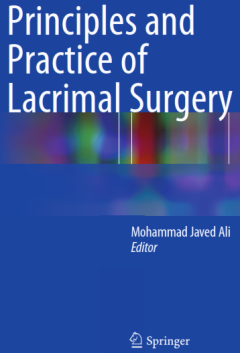
Principles and Practice of Lacrimal Surgery
Sebuah teks komprehensif yang membahas evaluasi dan pengelolaan berbagai gangguan lakrimal, Termasuk lebih dari 250 ilustrasi berwarna, Perbesaran tinggi, foto endoskopi jarak dekat untuk penggambaran dan pemahaman anatomi yang lebih baik, Termasuk topik tentang sains dasar dan pembangunan konsensus tentang isu-isu controversial. Sistem lakrimal berhubungan dengan air mata dan kelenjar yang…
- Edition
- -
- ISBN/ISSN
- 978-81-322-2020-6
- Collation
- -
- Series Title
- -
- Call Number
- 617.76 ALI p
 Computer Science, Information & General Works
Computer Science, Information & General Works  Philosophy & Psychology
Philosophy & Psychology  Religion
Religion  Social Sciences
Social Sciences  Language
Language  Pure Science
Pure Science  Applied Sciences
Applied Sciences  Art & Recreation
Art & Recreation  Literature
Literature  History & Geography
History & Geography